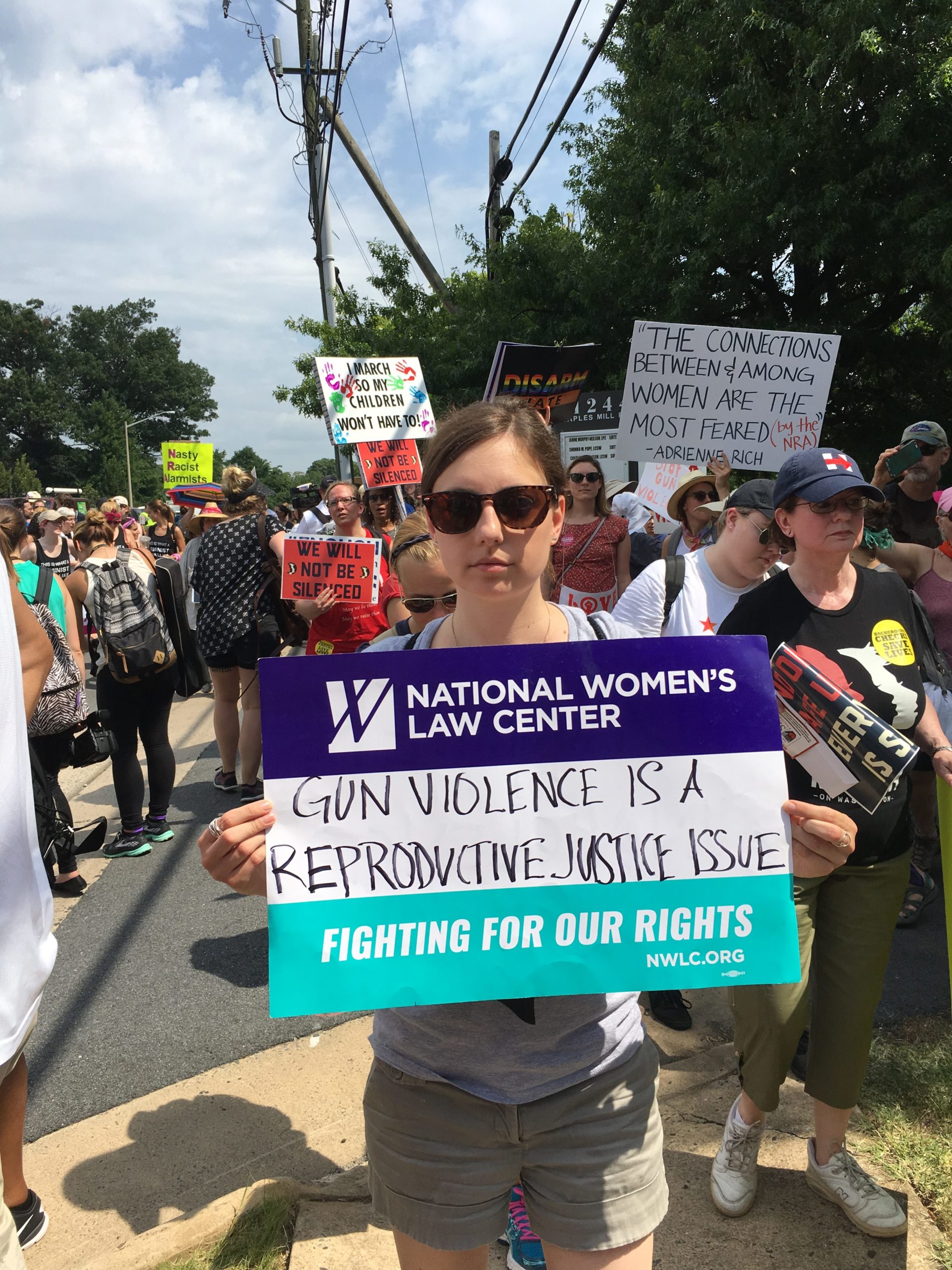NWLC Argues as Amicus in Support of Black Women Workers in Sex Harassment Case before the California State Court of Appeal
(Los Angeles, CA) Today, the National Women’s Law Center (NWLC), represented by Covington & Burling LLP, argued as amicus before the California State Court of Appeal, Second Appellate District, Division Eight. The NWLC supports the position of the women employees who are appealing a negative decision in Schmidt, et al., v. Superior Court, County of Ventura.
The case involves two Black women who sued their employer, the Ventura County Superior Court, for sexual harassment and related claims under the California Fair Housing and Employment Act. Sex harassment claims of the two women arose after a court security guard, a white man, regularly subjected them to inappropriate scrutiny and other harassing behavior during the required security screening process as they entered the courthouse. For example, the security guard targeted the women for unnecessary and physically invasive use of a security wand.
The Superior Court of the State of California for the County of Santa Barbara ruled against the women’s claims of sexual harassment. The trial court determined that the Black women and others who suffered similar harassment did not appear or behave as ‘reasonable’ victims of sex harassment. The court discredited testimony from one of the Black women plaintiffs because she seemed angry, and thus that it was implausible that she wouldn’t have been more aggressive in resisting and reporting sex harassment.
With support from the TIME’S UP Legal Defense Fund, the plaintiffs appealed the trial court’s decision to the California State Court of Appeals. In October, NWLC submitted an amicus brief to the California State Court of Appeal in support of the women. The Center’s brief synthesizes the current social science and law of sex harassment so that the Court of Appeals could more fully understand how women, particularly women of color, experience sex harassment in the workplace and may or may not respond to such incidents. The brief addresses how few women report sex harassment, barriers to reporting, and frequent harsh consequences of reporting. The brief calls on the Court to acknowledge diverse responses to sexual harassment and question racial and gender-based stereotypes that underlie the problematic decision of the lower court.
The following is a statement from Sunu Chandy, NWLC Legal Director:
“We are proud to support the plaintiffs in this case and to shine a light on the ways in which race and sex-based stereotypes, if allowed to go unchecked, can further harm women of color who bring sex harassment claims. Dismissing cases based on the notion that Black women, or any other group of women as a group, will always respond to sexual harassment in one way, and only one way, is belied by social science and the realities of women of color in the workplace. NWLC urges the Appeals Court to remand to the lower court for further review.”
###
For immediate release: December 19, 2019
Contact: LySaundra Campbell ([email protected])




